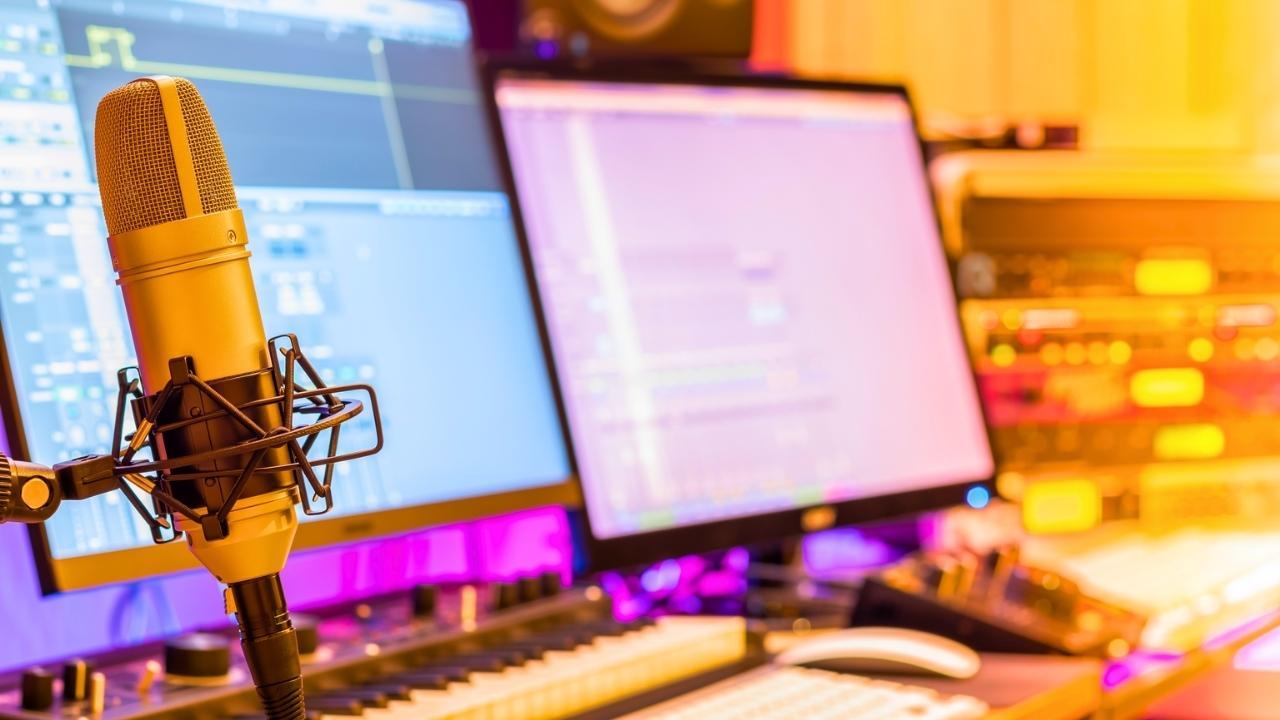What is a Condenser Microphone?
A condenser microphone is a type of microphone that uses a capacitor to convert sound waves into an electrical signal. It is also sometimes called a capacitor microphone.
Condenser microphones are typically more sensitive and responsive than dynamic microphones and are often used in studio recording and live sound applications where high-quality audio capture is critical. They are particularly well-suited for capturing the subtle nuances of acoustic instruments, vocals, and ambient sounds.
Condenser microphones work by using a thin diaphragm, typically made of metal or plastic, that is charged with electricity. When sound waves hit the diaphragm, it vibrates, causing the distance between the diaphragm and a stationary back plate to change. This change in distance alters the capacitance between the two plates, which produces an electrical signal that corresponds to the sound waves.
Condenser microphones require an external power source, typically in the form of phantom power supplied by a mixing console, preamp, or audio interface. Some condenser microphones also include built-in batteries or other power sources.
Overall, condenser microphones are widely used in professional audio production due to their high sensitivity, wide frequency response, and ability to capture subtle details and nuances in sound. However, they are also typically more fragile and expensive than dynamic microphones and may require careful handling and storage to ensure optimal performance.
What is the Difference Between a Dynamic Microphone and Condenser Microphone?
Dynamic microphones and condenser microphones are two common types of microphones used in music production and live sound applications. Here are some key differences between the two:
- Construction: Dynamic microphones use a moving coil to generate an electrical signal, while condenser microphones use a capacitor to convert sound waves into an electrical signal. This fundamental difference in construction affects the sensitivity, frequency response, and other characteristics of the microphones.
- Sensitivity: Condenser microphones are generally more sensitive than dynamic microphones, meaning they can capture quieter sounds and more subtle nuances in sound. This makes them a popular choice for recording vocals, acoustic instruments, and ambient sounds.
- Frequency Response: Condenser microphones typically have a wider frequency response than dynamic microphones, meaning they can capture a broader range of frequencies. This makes them well-suited for recording detailed and complex sounds, such as the overtones of a guitar or the nuances of a vocal performance.
- Durability: Dynamic microphones are generally more rugged and durable than condenser microphones and can withstand rough handling, high sound pressure levels, and other challenging conditions. This makes them a popular choice for live sound applications.
- Cost: Condenser microphones are typically more expensive than dynamic microphones due in part to their more complex construction and higher sensitivity. This makes them more commonly used in a professional studio and live sound settings, where high-quality audio capture is critical.
Overall, the choice between a dynamic microphone and a condenser microphone will depend on the specific needs and requirements of the recording or performance. Dynamic microphones are a good choice for live sound applications and recording loud sources such as drums or guitar amps, while condenser microphones are a popular choice for studio recording and capturing detailed, nuanced performances.

Interested in a Music Career?
Are you passionate about music and looking for an education that can give you a competitive edge in the entertainment industry? Look no further than the Atlanta Institute of Music and Media (AIMM).
AIMM offers a uniquely effective approach to vocational training for musicians, music production, and audio engineering. Our well-rounded curriculum includes classroom instruction, stage performances, computer labs, recording studios, and live clinics, providing students with an extensive education unmatched by other accredited music colleges.
In addition, AIMM offers the opportunity to become Pro Tools Certified, further enhancing your skills and qualifications in the field. At AIMM, you'll truly learn from both sides of the studio.
If you're looking to gain hands-on experience and make connections with renowned music production faculty and industry professionals, AIMM's programs are the perfect place to start. Our cutting-edge education can give you the tools to excel in the entertainment industry.
To learn more about the benefits of a music school, contact AIMM today and take the first step towards achieving your music dream.








